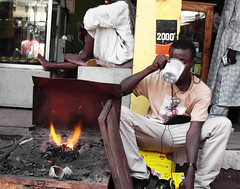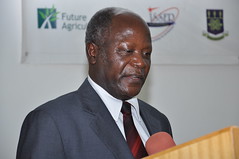KNOTS blogger |
| China’s Health care Reform: Towards “Health Care for All” Posted: 30 Mar 2012 07:46 AM PDT BY Dezhi YU, Xuefei GU, Yunping WANG (China National Health Development Research Center) [Editor's note: This piece originally appeared as an Editorial for the IHP newsletter, and has been reproduced here with their permission.] China launched a new round of healthcare reform in 2009 with the overall goal to establish a basic healthcare system for all, and provide the people with safe, efficient, convenient and affordable health care services. In the past three years, substantial efforts have been made and 850 billion RMB has been committed to invest in the following five priority areas: (1) accelerate the establishment of basic health protection; (2) set up a national essential drugs system; (3) improve the grass-roots health services delivery system; (4) gradually equalize public health services; and (5) pilot test public hospital reforms. Evidence has shown that significant achievements have already been made in the reform of the urban and rural grass-roots health services delivery system, in terms of both facility construction and capacity building. Meanwhile, people’s financial access to essential health services has improved and the economic burden of disease has been reduced with the rapid development of a basic health protection system, composed of the New Rural Cooperative Medical Scheme (NRCMS), the Basic Medical Insurance scheme for Urban Employees (BMIUE), the Basic Medical Scheme for Urban Residents (BMSUR) and the Medical Assistance Scheme (MA) for urban and rural poor households. MA has helped to improve the equity in health services utilization and enhance the reimbursement level for poor households through subsidizing NRCMS premiums, paying costs below the deductible, cross-reimbursing, and providing immediate financial assistance for catastrophic costs. By the end of 2011, more than 95% of the Chinese citizens were covered by this system. For the NRCMS enrollees, average financing has increased to 250 RMB per capita, while the out-of-pocket rate has dropped to 49.5%. The percentage of rural households residing within 15 minutes of a health facility increased from 75.6% (in 2008) to 80.8% (in 2011). Out- and in- patient health expenditure now increase by less than 7% in public hospitals annually (i.e. less than economic growth). The infant mortality and maternal mortality rates have declined from 14.9‰ to 12.1‰, and 34.2/100,000 to 26.1/100,000 respectively. Yet, great challenges remain on the road towards “health services for all”. Typical challenges include: (1) compared with the increasing expectations of beneficiaries, the benefit package of the basic medical security system remains rather narrow and the reimbursement level is considered low; also, the insurance is not portable between provinces. The pooling fund should thus get the best out of every penny spent to ensure access to quality health services and prevent the risk of overspending with proper cost-containing measures and a payment system reform, as well as an appropriate policy on cross-government transfer payments. (2) Deepening the comprehensive reform of the grass-roots health facilities in terms of management mechanism, financing mechanism, drug supply system, personnel management and remuneration mechanism, and information system. A GP system also has to be established. (3) Accelerating the public hospital reform by innovating the management and service delivery pattern, establishing a corporate governance structure, changing the financing mechanism and incentives, encouraging the private sector to invest in the public hospital reform, etc. In the next five years, the Chinese government is expected to make further progress towards a basic healthcare system for all, by improving the allocation of health resources and ensuring equity, to ultimately enhance the health status of the entire population. |
| You are subscribed to email updates from KNOTS blogger To stop receiving these emails, you may unsubscribe now. | Email delivery powered by Google |
| Google Inc., 20 West Kinzie, Chicago IL USA 60610 | |




 James Karuga is a Kenyan journalist and one of the winners of our
James Karuga is a Kenyan journalist and one of the winners of our 


